こんにちは、いよいよ明日からお盆ですね!
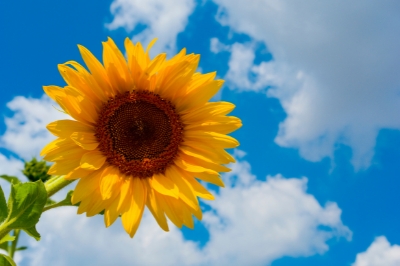
お盆は日本独特の風習ですが、これを外国人の友人に尋ねられた時、英語で説明できますか?
今回は「お盆」について英語で説明できるように勉強しましょう!
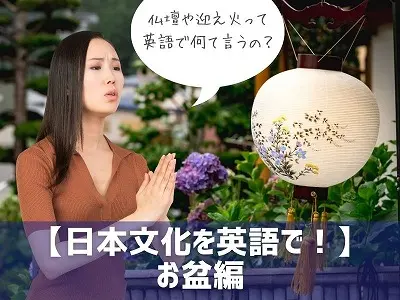
そもそも「お盆」とは?
お盆について、日本人でも日本語で説明するのも大変ですよね。
「お盆=お盆休み」としか認識していない方もいるかもしれません。
お盆という言葉はもともと仏教用語から来ています。
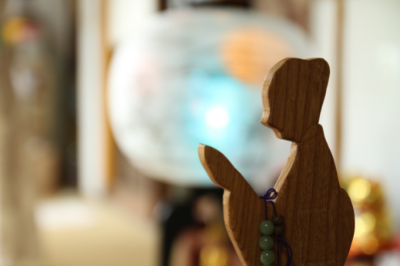
その意味は現在も日常生活で使われる「お盆」と同じなのですが、本来は精霊/霊に対する供物を置く容器として意味していました。
それが供物を供えまつられる精霊/霊の方の呼称となっていったと言われています。
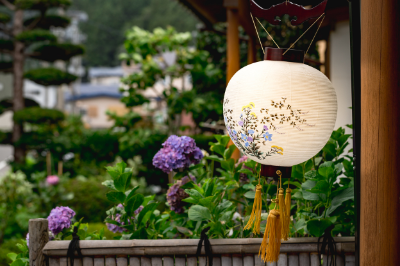
お盆の明確な起源は今でも分かっていないそうですが、日本ではすでに8世紀頃には、夏の時期に祖先の供養を行っていたと言われています。(諸説あり)
その後、お墓参り、迎え火・送り火、盆踊りなどの一連の仏教行事として知られるようになりました。
時期は、毎年8月13日から16日までの4日間が一般的とされていますが、地域によっては内容や様式が異なる場合もあるようです。
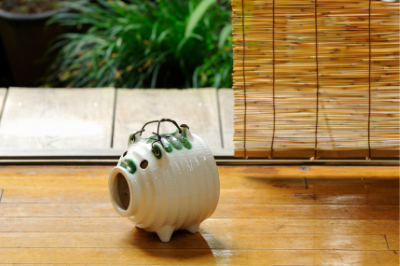
お盆に関する単語の英語表現
まずは、お盆に関する単語を英語で覚えましょう!
お盆:Obon、O-bon
お盆は日本独特の行事なので、英語では、そのまま”Obon”、”O‐bon”と表記されます。
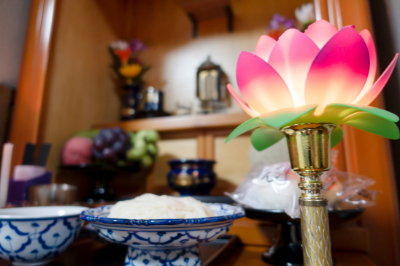
お盆休み:Obon Holiday, Obon Vacation, Obon Festival
祖先:ancestors
霊: spirits
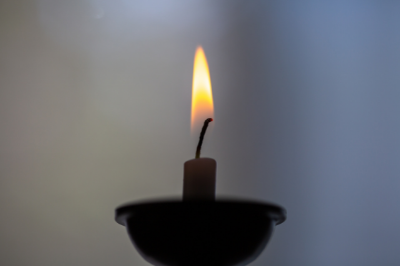
仏教:Buddhist
亡くなった祖先:the departed ancestors
お仏壇:Buddhist family alters
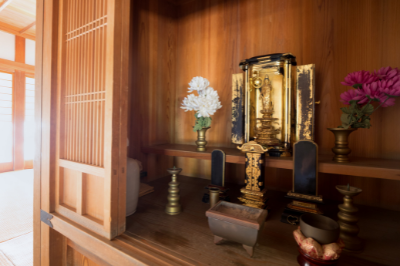
供物:offering
供養する:worship
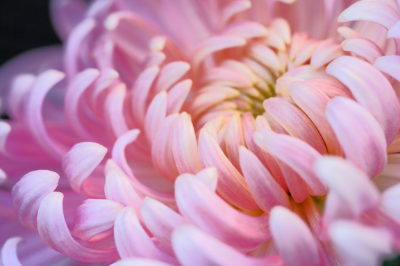
習慣:customary
あの世:afterlife
お墓参り:to visit graves
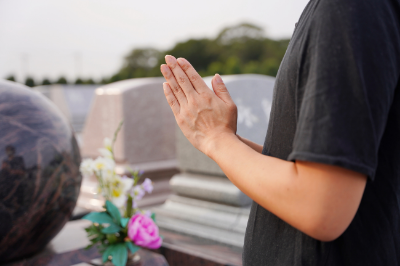
迎え火:Mukaebi , the welcome fire
送り火:Okuribi , ceremonial fire
精霊送り:escorting of the spirits
お盆について英語で説明!
Obon is a Buddhist event in Japan to worship the spirits of our departed ancestors.
お盆は、先祖の霊を供養する仏教行事です。
It is usually held during the period from July 13th to 15 th (or 16 th), or from August 13th to 15th (or 16 th).
お盆の期間は、7月13日~15日(16日)、または、8月13日~15日(16日)です。
That differs depending on the region and areas.
それは地方や地域によって異なります。
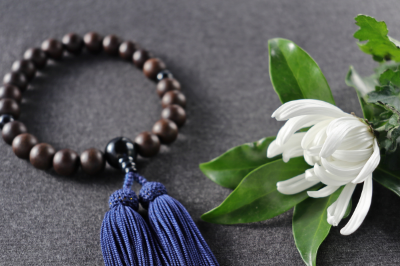
It is believed that the spirits of our ancestors return to our home from afterlife during the Obon period.
そのお盆の時期には、あの世から先祖の霊が家に帰ってくると信じられているのです。
Therefore, we welcome back the spirits of the departed ancestors during Obon every year.
従って、私たちは、毎年お盆の時期は、祖先の霊を迎え入れているのです。
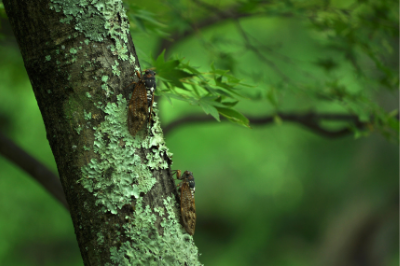
Obon Holiday is not a national holiday, but many people usually go back to their hometown to spend the Obon event with their family during the period.
お盆休みは祝日ではありませんが、多くの人はお盆を故郷の家族と迎えるために実家に戻っていきます。
During the Obon event, basically at the first day of Obon, we visit their family’s grave to welcome the spirits of the ancestors with our family members.
お盆の期間中、基本的にはお盆初日に、私たちは家族とともに祖先の霊を迎えるためにお墓参りをします。
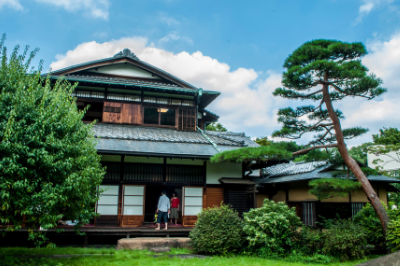
Some families believe that the spirits of their ancestors will return home directly and wait at home.
一部では、先祖の霊が直接家に帰ってくると信じ、家で待つ家族もいます。
Commonly, we burn the welcome fire, called “Mukaebi”, at the entrance of our home to guide the spirits of the ancestors in the evening of the first day , usually in the evening of the 13th August.
一般には、先祖の霊を案内するために、8月13日の夕方に「迎え火」と呼ばれる火を門や玄関先でたくのです。
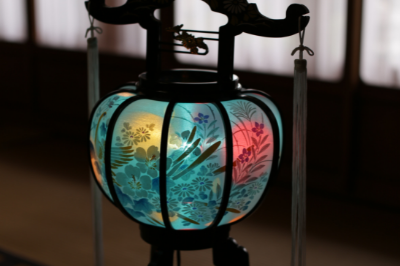
In our house, we clean our Buddhist alters, and prepare a special altar with beautiful flowers, foods, vegetables and fruits as offerings to welcome the spirts of the ancestors.
家の中では、彼らを迎え入れるために仏壇を掃除し、特別な祭壇にお花や供物を飾ります。
In some area, it is customary to prepare horses made from cucumber and cows made from eggplant as offerings.
ある地域では、キュウリで作った馬とナスで作った牛を、お供え物として準備する習慣もあります。
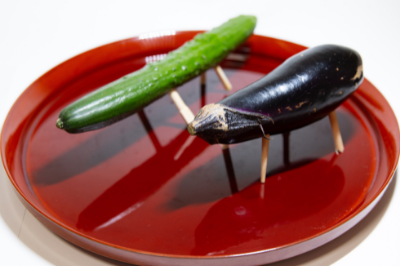
Because the horses and cows are believed to be the vehicles used by the spirits of ancestors to travel between this world and afterlife.
なぜならこの馬と牛は、先祖の霊があの世とこの世を行き来する時に使われる乗り物だと言われているからです。
These horses mean “please come back fast” and these cows mean “please go home as slowly as possible”.
それらの馬には「早く戻ってきてください」という意味があり、牛には「できるだけゆっくり帰ってください」という意味があります。
After those preparations are completed, we light a candle and burn incense sticks, called Osenko, in memory of the deceased family members.
そして、それらの準備が完了した後、ろうそくに火を灯し、お線香に火をつけて供え、故人を偲ぶのです。
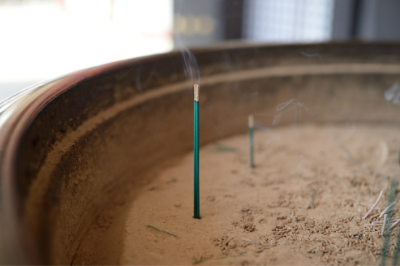
After spending a few days with their spirits, we send them off to afterlife in the evening of August 15th or 16th at the entrance of our home.
数日間、先祖の霊と過ごした後の8月15日か16日の夕方に、玄関先で送り火をたき、彼らの霊を見送ります。
When we send the spirits of the ancestors back, we again burn the fire, called “Okuribi”on the day.
先祖の霊を送るときは、「送り火」と呼ばれる火を炊きます。
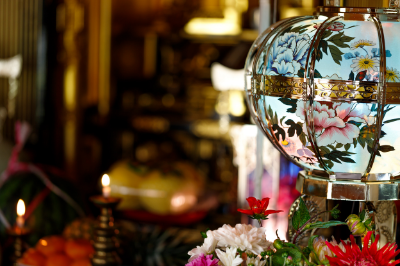
In some region and areas, we finally float offerings on a spirit ship on rivers and the ocean.
ある地域では、最後にお供え物を川や海に流します。
This is called ‘the escorting of the spirits’.
これを「精霊送り」と言います。
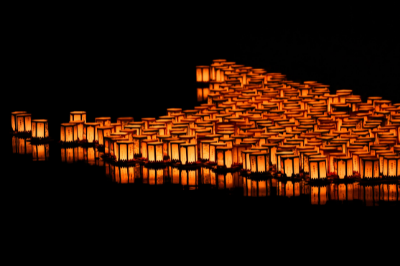
まとめ
今回は「お盆」についての英語表現をご紹介しました。
今年はなかなか帰省も難しいかもしれませんが、未だに日本独特の風習としてお盆は存在しています。
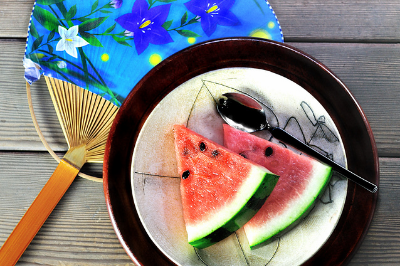
外国人に「お盆って何?」と聞かれた時、日本人として説明できるようにしておきたいですね!
